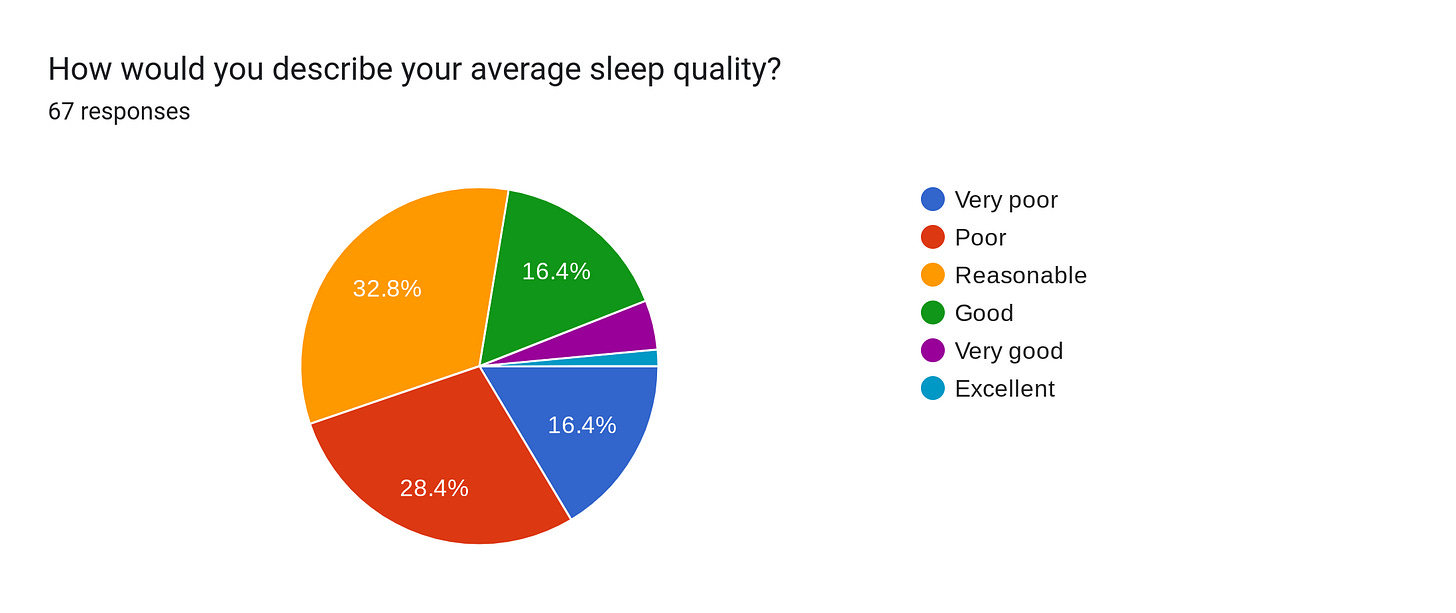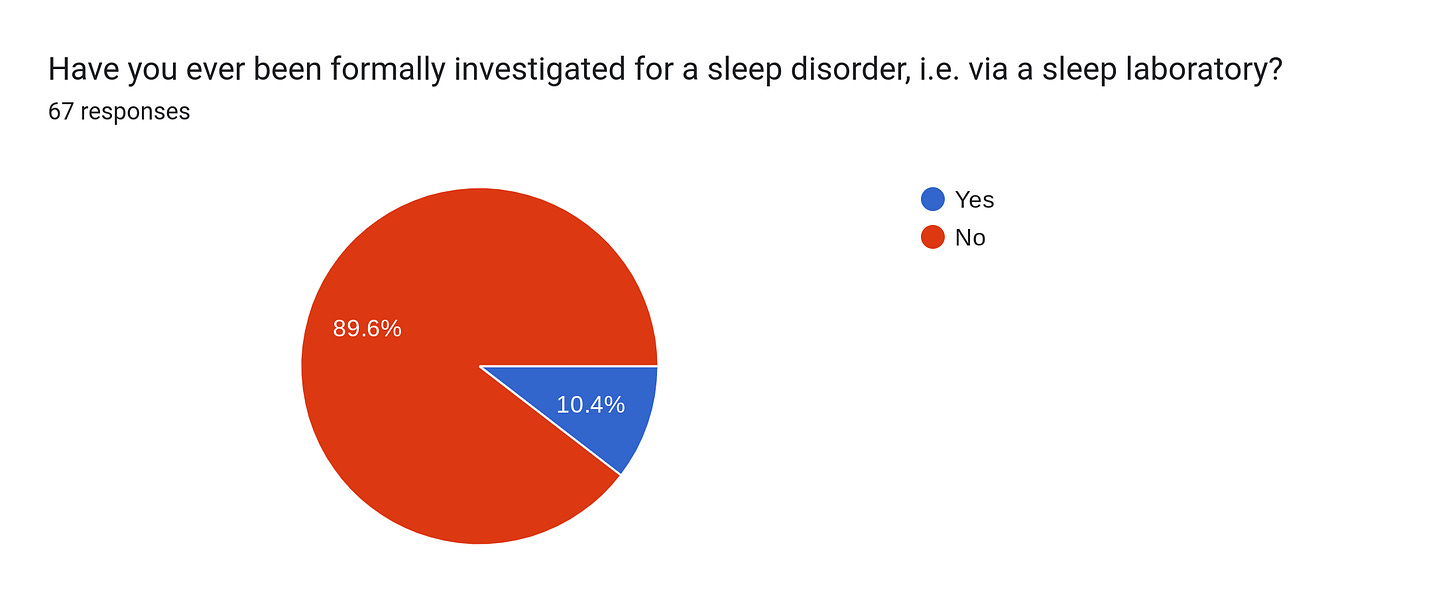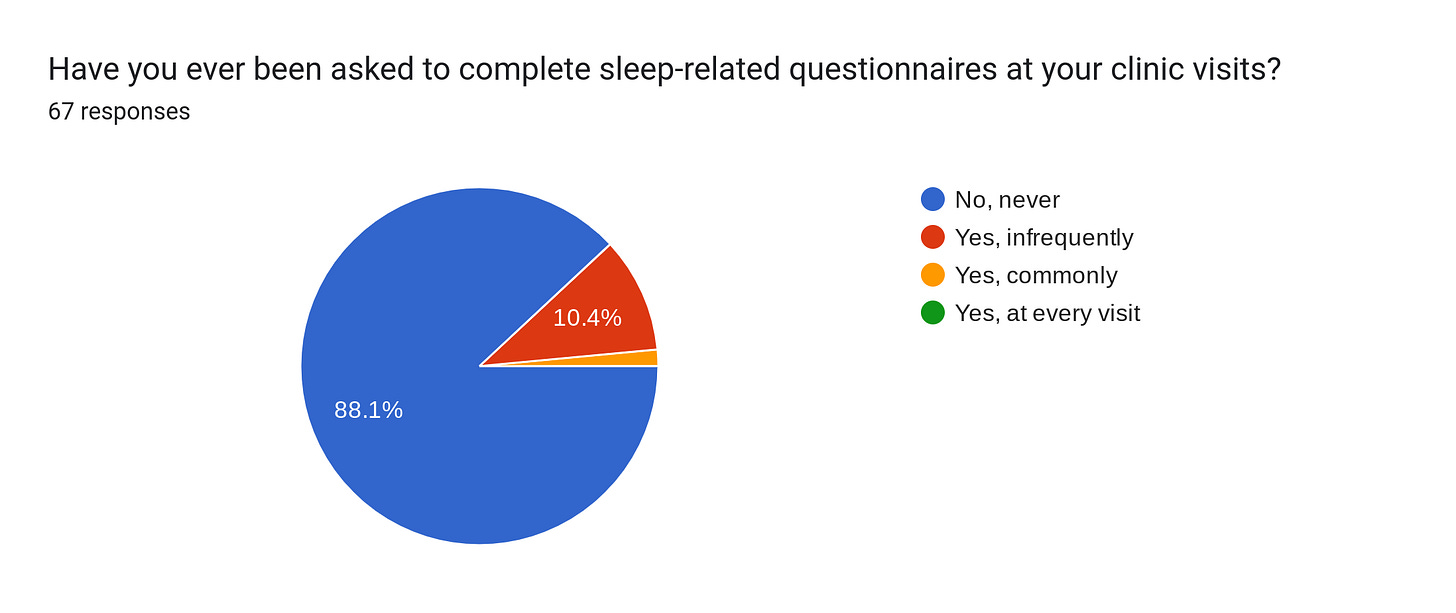I recently highlighted the issue of insomnia for people with MS. Please see my recent MS-Selfie newsletter, ‘Insomnia and multiple sclerosis’ (09-Sep-2024).
Insomnia is a problem for many pwMS, and it is the one hidden symptom that not only integrates many other MS-related issues but is a significant contributor to poor brain health and poor outcomes in pwMS. In addition, the symptom lends itself to self-diagnosis and self-management.
The following is a summary of the preliminary survey results that some of you completed.
Are you surprised by the results?
If you haven’t completed the sleep survey, please do. It is still open, and if we get more than 200 respondents, we could potentially write it up as part of an insomnia self-help guide. Thank you.
Subscriptions and donations
MS-Selfie newsletters and access to the MS-Selfie microsite are free. In comparison, weekly off-topic Q&A sessions are restricted to paying subscribers. Subscriptions are being used to run and maintain the MS Selfie microsite, as I don’t have time to do it myself. You must be a paying subscriber if people want to ask questions unrelated to the Newsletters or Podcasts. If you can’t afford to become a paying subscriber, please email a request for a complimentary subscription (ms-selfie@giovannoni.net).
Important Links
X (Twitter) / LinkedIn / Medium
General Disclaimer
Please note that the opinions expressed here are those of Professor Giovannoni and do not necessarily reflect the positions of Queen Mary University of London or Barts Health NHS Trust. The advice is intended as general and should not be interpreted as personal clinical advice. If you have problems, please tell your healthcare professional, who will be able to help you.
















I was using OTC sleep remedies for years when I was working. Too many variations due to international travel and also late evening entertaining. Once retired I had problems sleeping if I didn’t take them, so asked my marvellous GP to prescribe. He asked me to complete an online sleep quality questionnaire which I did.
Started me on the lowest dose Amitriptyline 5mg then 10mg which does the job. Of course by being asleep the Nocturia problem was resolved. So, all good.
Also, it’s worth noting that most of my issues with MS have been managed by my GP, following very strong evidence based suggestions by me.
I am not at all surprised by these results. Sleep disruption can be caused by so many MS symptoms but neurologists never ask about sleep quality or which MS symptoms cause sleep disruption. There are treatments, which will differ depending on the cause of the disruption.
Luckily, I know to research my own condition and push for the correct treatment. But not everyone has the confidence or know how to do that, so they will receive poor treatment and fall through the net. Sleep quality affects MS disease progress and can cause co morbidities like HBP, heart disease, diabetes and anxiety and depression. GPs and neurologists need to be trained better in sleep disorders.